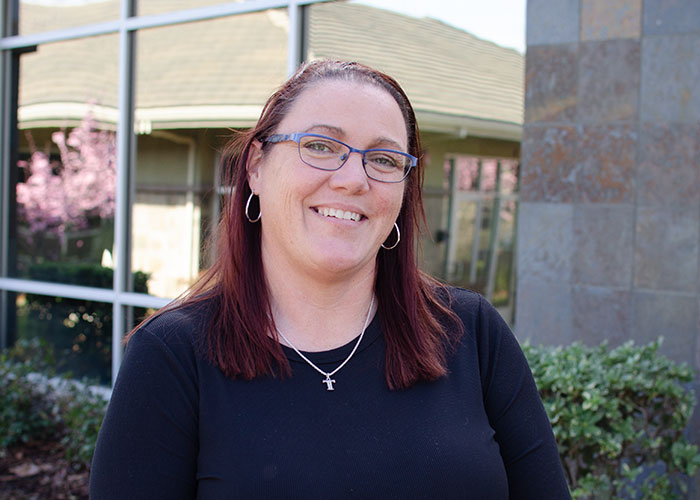How Many Hours of Respite Care Are You Allowed? [+ FAQs]
![How Many Hours of Respite Care Are You Allowed? [+ FAQs]](https://alwaysbestcare.com/wp-content/uploads/2024/01/how-many-hours-respite-care-are-you-allowed-hero-image.jpg)
If you are caring for an aging, chronically ill, or disabled family member, you know that this role is no easy feat.
The stress of caregiving leads many caregivers to seek out respite care for some much-needed relief. If you’re looking into this option, you might have some questions about how it works. One of the most frequently asked questions is, “How many hours of respite care are you allowed?”
We’ll answer this question and others, plus share how our dependable team at Always Best Care Senior Services can help you with the stress of caregiving.
Table of Contents
What Are Respite Hours?
Respite hours refer to the duration given to temporarily relieve individuals from their caregiving duties.
During respite hours, another professional caregiver steps in to take over the sole caregiver’s responsibilities, allowing them to rest, attend to personal matters, or simply take a break.
How Many Hours of Respite Care Are You Allowed?
There is no limit to how long you can use respite care services. This type of care can be as short or long as needed — anywhere from a few hours or days to weeks or months.

Types of Respite Care
Respite care provides temporary relief for caregivers — particularly those caring for family members with chronic illnesses, such as Alzheimer’s, or disabilities.
This type of care can require professional caregivers, family, or friends to assist your loved one while you are away, making sure they receive the necessary support and attention.
Types of care options include:
1. In-home Care
In-home care, or companionship care, is a type of care option in which professional caregivers assist your loved one within the familiar surroundings of their own home.
Professional caregivers who provide this type of care can manage different tasks, from light housekeeping duties, like dusting and trash disposal, to preparing meals tailored to your loved one’s dietary needs.
In-home care can be provided anywhere from a few hours to extended periods.
2. Adult Day Care
Adult day care is a care option in which your loved one receives assistance at a dedicated facility or community center.
At an adult day care center, your loved one will benefit from activities that promote socialization, while making sure that their medical needs are taken care of.
3. Residential Care
Residential care is a care option in which your loved one resides in a specialized facility, such as a nursing home or assisted living community.
This type of care option offers a comprehensive and long-term care solution, allowing your loved one to receive continuous support and supervision.
How To Find Respite Care for Your Loved One
Selecting the ideal care option is the first step in making sure that your loved one receives the appropriate support while you take a much-needed break.
To choose respite care for your loved one:
- Evaluate your needs: Assess the specific care requirements of your loved one, such as their illness or disability, the level of care needed, and the frequency and duration of respite care needed. For example, if your loved one is experiencing recurrent falls, you can opt for in-home care services and adapt your home to prevent tripping hazards. On the other hand, if your loved one is diagnosed with Alzheimer’s, you can opt for residential care in which social activities are facilitated to stimulate cognitive abilities and a safe and structured environment is provided.
- Research care options: Look into the different types of care services available in your area. These can include in-home care, adult day centers, short-term nursing homes, or residential care facilities. Get in touch with local healthcare providers or utilize caregiver support resources for recommendations.
- Check qualifications and experience: Make sure that the caregivers are screened, trained, and have the necessary qualifications and experience to provide care for your loved one’s specific needs. They should be aware of their needs, such as special diets and using assistive devices, so they can effectively manage symptoms and offer optimal support.
- Request references: Ask for references from family members or friends who have used respite care services to gain valuable insights into their reliability and the quality of care provided.
- Visit the facility: If you are considering a facility, arrange a visit to see the environment and facilities. Consider its cleanliness, the attitude of the staff, and whether the residents look well cared for.
- Make sure safety measures are in place: Check that the facility or home care service is equipped with proper safety measures and emergency procedures. This includes evaluating the environment and making sure that the caregivers are trained to manage medical emergencies.
- Review the activity programs: If your loved one is attending an adult day care or residential facility, review the activities they offer. Activities should be suitable for your loved one’s interests and abilities to help them stay mentally and physically active. Activity programs can include gentle exercise classes, such as chair yoga, for patients with mobility issues. On the other hand, memory games, music therapy, art projects, and storytelling sessions are suitable for dementia patients.
- Plan a trial period: A short trial period can help you determine whether respite care is right for your loved one and whether they are comfortable with the caregivers and the environment.
- Stay involved: Once you’ve selected a respite care option, stay involved in your loved one’s care. Regularly communicate with your loved one’s caregivers and visit often to monitor the quality of care they are receiving. Observe how your loved one is adjusting to the respite care environment by taking note of their mood, health, and overall well-being, and discuss any changes or concerns with the caregivers.

Respite Care at Always Best Care
Always Best Care Senior Services was established to ease the stress that caregivers often face when searching for the perfect senior care. Our dedicated and caring team is focused on providing trusted, reliable care for your loved one.
With more than 225 territories, we offer a personalized approach, customizing our services to suit the specific needs of you and your loved one.
Our senior care services include:
- In-home care services: We provide care for your loved one in the familiar and comfortable setting of their own home. Our services range from around-the-clock or overnight care, companionship, assistance with daily tasks like laundry, meal preparation, and light housekeeping. We also offer mobility, safety supervision, hospital to home, and even hospice support.
- Respite care services: We offer you the opportunity to take a well-deserved break, so you can concentrate on work, attend to other personal responsibilities, or errands. Our skilled caregivers step in to look after your loved one, making sure they receive the same quality of attention and care that you would offer.
We also offer:
- Skilled home health care services: We create tailored care plans for seniors, whether they’re recovering from an illness or have special needs. Our services encompass chronic illness management, bowel program, nutrition education and support, all customized to meet the specific needs of your loved one.
- Specialized home care services: We leverage advanced technology and specialized care strategies to meticulously monitor and manage your loved one’s health.
- Senior living referral services: We can help you locate the ideal senior living community for your loved one depending on their needs and geographical preference, to make sure they receive exceptional care.
- Veterans assistance program: We assist veterans in securing financial assistance for their healthcare needs, ensuring they receive the highest level of consideration and respect.
FAQs About Respite Care
Still have questions about respite care? Find the answers below.
What is respite care?
Respite care provides temporary relief to those who are caring for family members or friends, giving them a much-needed break from the daily routine and challenges of caregiving.
This type of temporary care can be arranged for just an afternoon or for several days, weeks, or months.
Who is respite care best suited for?
Respite care is ideal for caregivers who need a temporary break from their caregiving responsibilities. This includes those caring for individuals with chronic illnesses, disabilities, or aging-related issues.
It is particularly beneficial for caregivers who are looking after family members full-time and those dealing with high levels of caregiver burnout.
Can you get respite care for someone with dementia?
Yes, you can get respite care for someone with dementia. This type of care for dementia patients is specifically designed to cater to their unique needs.
Respite care for dementia patients requires caregivers who are trained in dementia care and understand how to manage the challenges associated with this condition.
These caregivers can provide a safe and supportive environment, such as dementia home care, and manage any dementia behavior changes or communication difficulties that can occur.
Is respite care the same as hospice care?
No, respite care is different from hospice care. While respite care focuses on providing temporary relief and support to caregivers, hospice care is provided for individuals who are terminally ill, typically with a life expectancy of six months or less.


![10 Senior Living Technologies You Should Know About [+ FAQs]](https://alwaysbestcare.com/wp-content/uploads/2025/06/senior-living-technology-hero-image.jpg)


